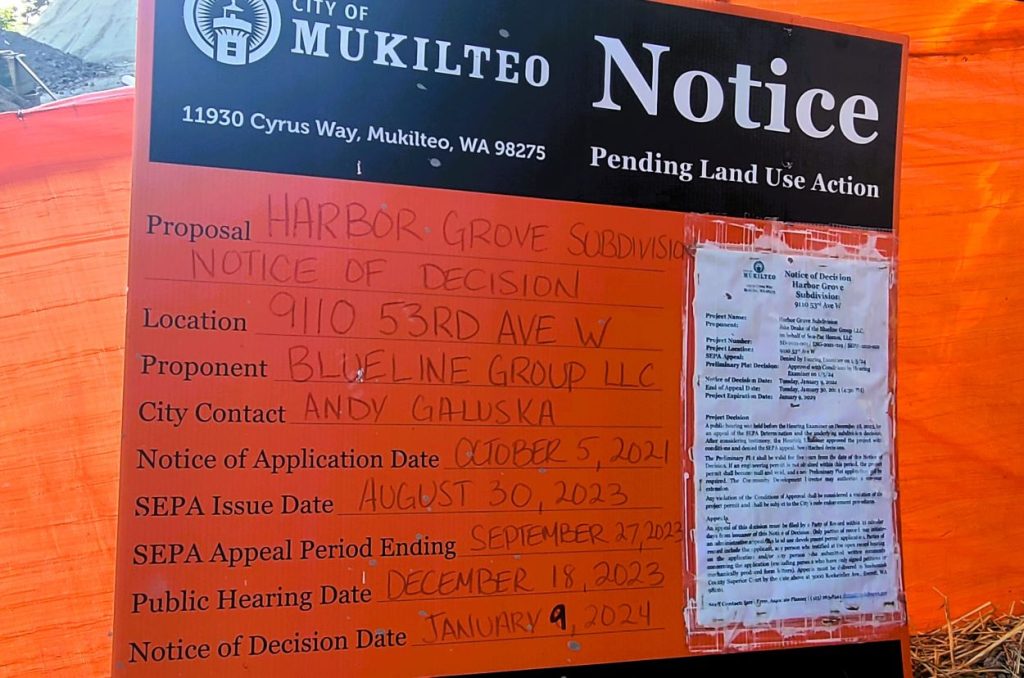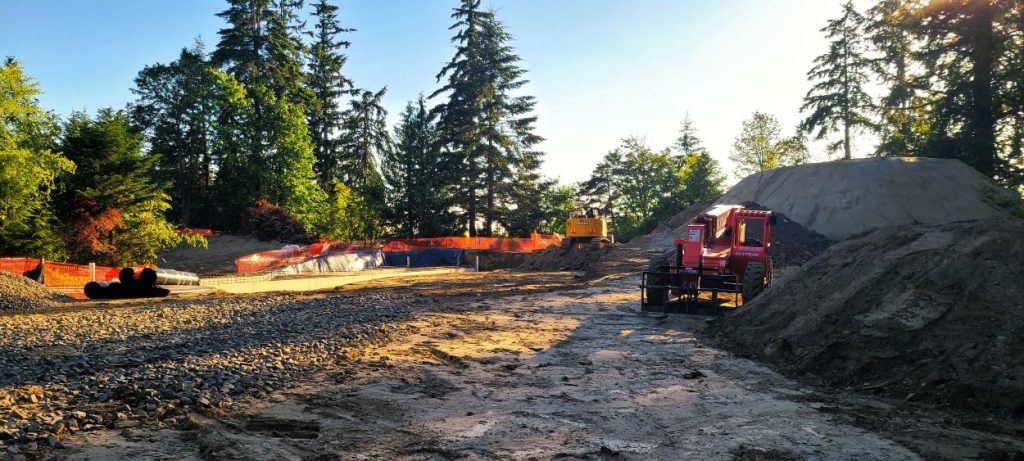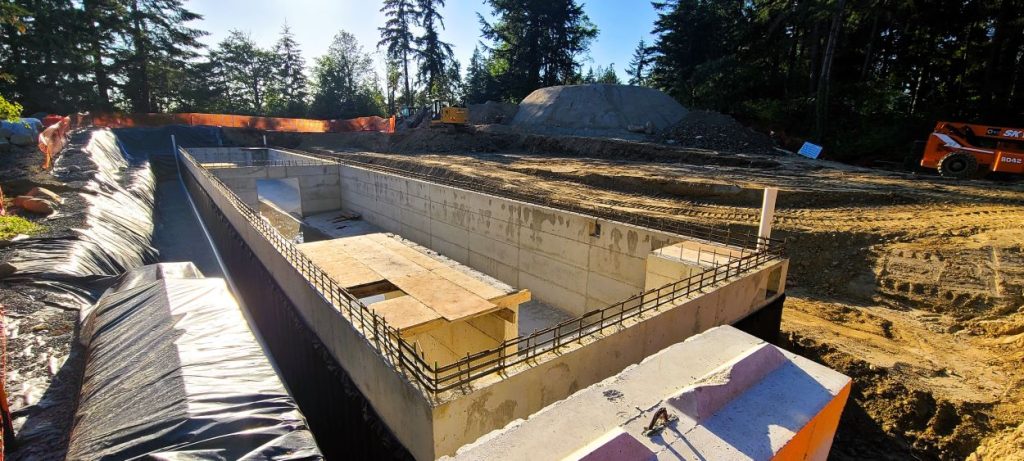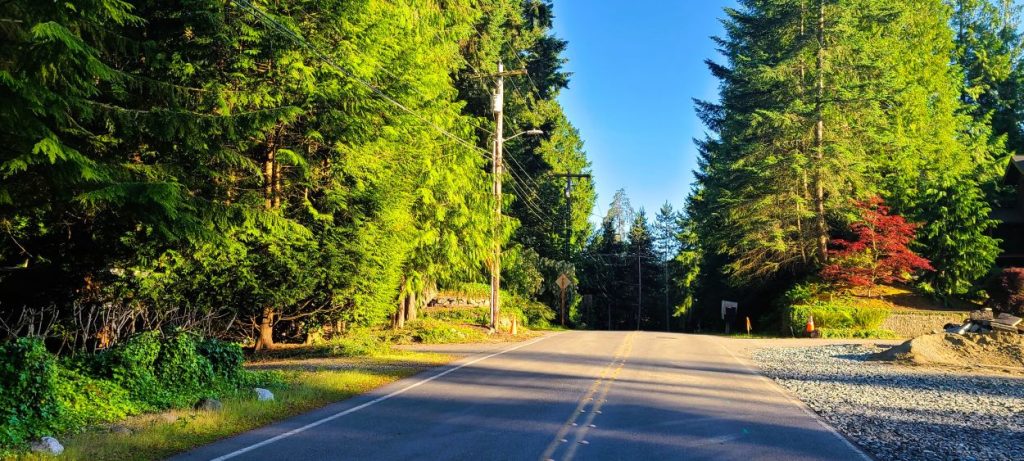MUKILTEO—The City of Mukilteo is currently in a legal battle over permits issued in error for the proposed Harbor Grove subdivision that has now been stripped and excavated of its native vegetation. A recent Superior Court ruling found that a Hearing Examiner “engaged in unlawful procedure or failed to follow a prescribed process” and made an “erroneous interpretation of the law” that violated the Washington State Environmental Policy Act.

If a civil ruling swings in a direction unfavorable to an individual or party, their proper legal recourse is to file an appeal. And if, subsequently, that appeal goes in a direction unfavorable to another, separate party, they themselves may want to challenge the new decision – essentially, an appeal of an appeal.
So, like stacking boxes atop each other, appeals upon appeals climb their way up through the judicial system, with state Supreme Courts serving as the ceiling. With this process comes disgruntled community members, contradictory testimonies and bench rulings, thousands of pages of paperwork, and mounting legal fees for plaintiffs and defendants.
If, as in the case of David Tyler v. City of Mukilteo, one of these parties is a municipality or government entity, then its taxpayers will share the bill for civil litigation that many residents may not even be aware of.
The Harbor Grove case
Tyler v. City of Mukilteo concerns a dispute over a proposed land development: Harbor Grove, a “seven lot subdivision on 2.43 acres of land” southwest of Nelson’s Corner in Mukilteo. As with any major construction project, the property owner and developer (in this case, Seattle Pacific Homes, LLC also known as Sea-Pac Homes, LLC) required municipal approval to break ground.
A key part of this process, as dictated by state and county law, relates to a State Environmental Policy Act (SEPA) “DNS”: a “Determination of Non-Significance” as mandated by the State Environmental Policy Act. To translate, this is an overview taken by the relevant regulatory body to ensure that construction will have a “non-significant” impact on the surrounding environment. For example, a property owner bulldozing an established native wildlife habitat to construct a large building would be considered a significant impact, and likely disallowed under this process.
In August 2023, Harbor Grove was issued a DNS by the Mukilteo City Planning Department, despite the protests of dozens of Mukilteo neighbors and environmentalists alike who took issue with the project. According to a case chronology document provided to the Lynnwood Times by a Mukilteo City Councilmember, “The DNS contains no conditions and does not acknowledge public comments.”

In December 2023, a municipal appeal against this DNS by Mukilteo community members took place. During this process, Mukilteo City Planning Director Andrew Galuska testified before Hearing Examiner Alex Sidles about the project’s compliance with SEPA, stating, “…The City didn’t analyze this because we didn’t feel the site itself has native vegetation… It’s fairly overgrown, but it is kind of ornamentally planted. There’s bamboo… the analysis wasn’t done because, at current, there is no native vegetation.” Per varying regulations, a percentage of “existing native vegetation” must be preserved when construction projects require large-scale uprooting.

Hearing Examiner Sidles responded by mentioning plaintiff David Tyler’s assessment that “the area of existing native vegetation is 90% of the site,” but seemed satisfied with the idea of a “vegetation plan” to bypass “required vegetation preservation… we’ll go in and plant, plant, plant until it hits 25% [native]. Wouldn’t that be another way of achieving the same standard?” According to the chronology document, photographic evidence displays “the presence of native shrubs, groundcover, and trees,” contradicting Galuska’s testimony.
The dispute over native vegetation went unresolved at this December hearing, due to an apparent lack of any witness specializing in botany. Hydrogeologist Scott Kindred presented several photos of the site as evidence, while giving a disclaimer: “This whole requirement for native growth is not my area of expertise.” Hearing Examiner Sidles, hardly more of an arborist than Kindred, responded, “To my non-expert eye, a lot of it looked native… if your intent was to convince me that most of this lot is just something obviously not-native, such as lawn or blackberries… I think you kind of showed the opposite of that, actually.”

Despite these remarks and confusion over other potential contradictions, the Hearing Examiner’s eventual decision in January 2024 denied the Tyler land use petition. Unsurprisingly, an appeal of Sidles’ ruling was filed shortly afterwards. Based on the Land Use Petition Act (LUPA), this new appeal was scheduled to be reviewed by the Snohomish County Superior Court in the summer.
In the spring, however, a convenient change to local law seemed to give Sea-Pac room to start developing the property before the case could progress further. Ordinance No. 1494 was adopted into the Mukilteo Municipal Code (MMC) on April 1, “modifying land use procedures” previously detailed in Section 17.13 of the MMC. This “eliminated the mandatory stay for judicial appeals”, per the chronology document, which elaborates that “the ordinance would lift the automatic stay for that [Harbor Grove] project… Staff did not disclose that, as a result of this ordinance change, it intended to issue construction permits that would allow Sea-Pac Homes to commence construction… no other projects in the city would be affected by the change.”
On April 10, the new ordinance took effect, and on April 18, the Harbor Grove project was given a construction permit, “despite the pending LUPA appeal and the prior knowledge that clearing of the site will result in destruction of disputed evidence (native vegetation)”. Development proceeded through May, resulting in the loss of vegetation from approximately 60-70% of the plotted land, including “old-growth trees”, per petitioner Jon Boyce.
In June, the second appeal was reviewed by the Snohomish County Superior Court, with Judge Richard Okrent presiding. The Court took issue with statements made by Mukilteo land development personnel, specifically City Planning Director Galuska. An Order Granting Appeal document signed by Judge Okrent reads, “Not only is Mr. Galuska’s testimony contradicted by substantial evidence in the record about the environmental impacts, this testimony is an admission of yet another failure to comply with SEPA’s procedural requirements.” Citing Section 197 of the WA Administrative Code, which requires that “environmental analysis, protection, and mitigation measures” be “adequately addressed”, Judge Okrent wrote that “the [Mukilteo City Planning] Department did none of these things… as a result, the Determination of Non-Significance is faulty…”
Judge Okrent granted the Tyler appeal on June 27, overruling the Hearing Examiner’s January decision and sending the case back down to the city. According to the chronology document, however, Sea-Pac’s development on the Harbor Grove site continued into July, including “excavation, grading, drainage, and utility work.”
On July 26, the City of Mukilteo motioned to appeal this Superior Court ruling, sending the case to a state-level appellate court (specifically, the District 1 Court of Appeals), where it is currently pending. This move reportedly came in the midst of settlement talks between the plaintiffs and Sea-Pac, possibly contributing to the failure of those negotiations.
Mukilteo City Councilmember Steve Schmalz confirmed to the Lynnwood Times that, as of June 2024, the city has spent approximately $42,000 in legal fees on the Tyler case.
One of Tyler’s fellow petitioners, Jon Boyce, wrote a letter published by The Mukilteo Beacon, in which he stated, “I hope the Superior Court judge’s decision is reversed on appeal, which sets up an appeal to the state Supreme Court. I am confident the state’s highest court will happily make a new, stronger case law that crushes collusion between municipalities and developers. The harm done to this site [Harbor Grove] is incalculable.”
If Boyce’s hypothetical were to come true, that would tally at least four separate legal appeals within Tyler v. City of Mukilteo. To recount: the initial DNS appeal, the following appeal of the Hearing Examiner’s decision, the ongoing Superior Court decision appeal, and a possible future appeal of an appellate court decision negating the Superior Court ruling. This immense sum of litigation could have potentially been avoided altogether if, as Judge Okrent opined, environmental regulations were more diligently adhered to in the first place.
Author: Kayvon Bumpus













One Response
1. How far above anticipated sea levels is this property located?
2. With the Cascadia Fault a constant threat, who is going to cover the damages and loss of access?